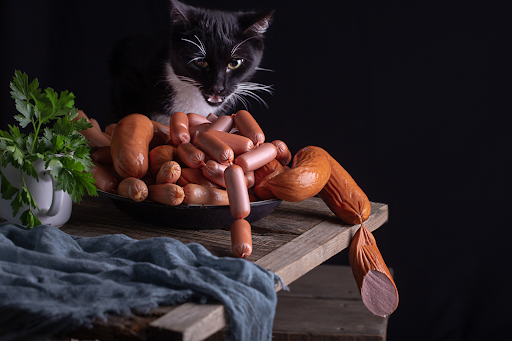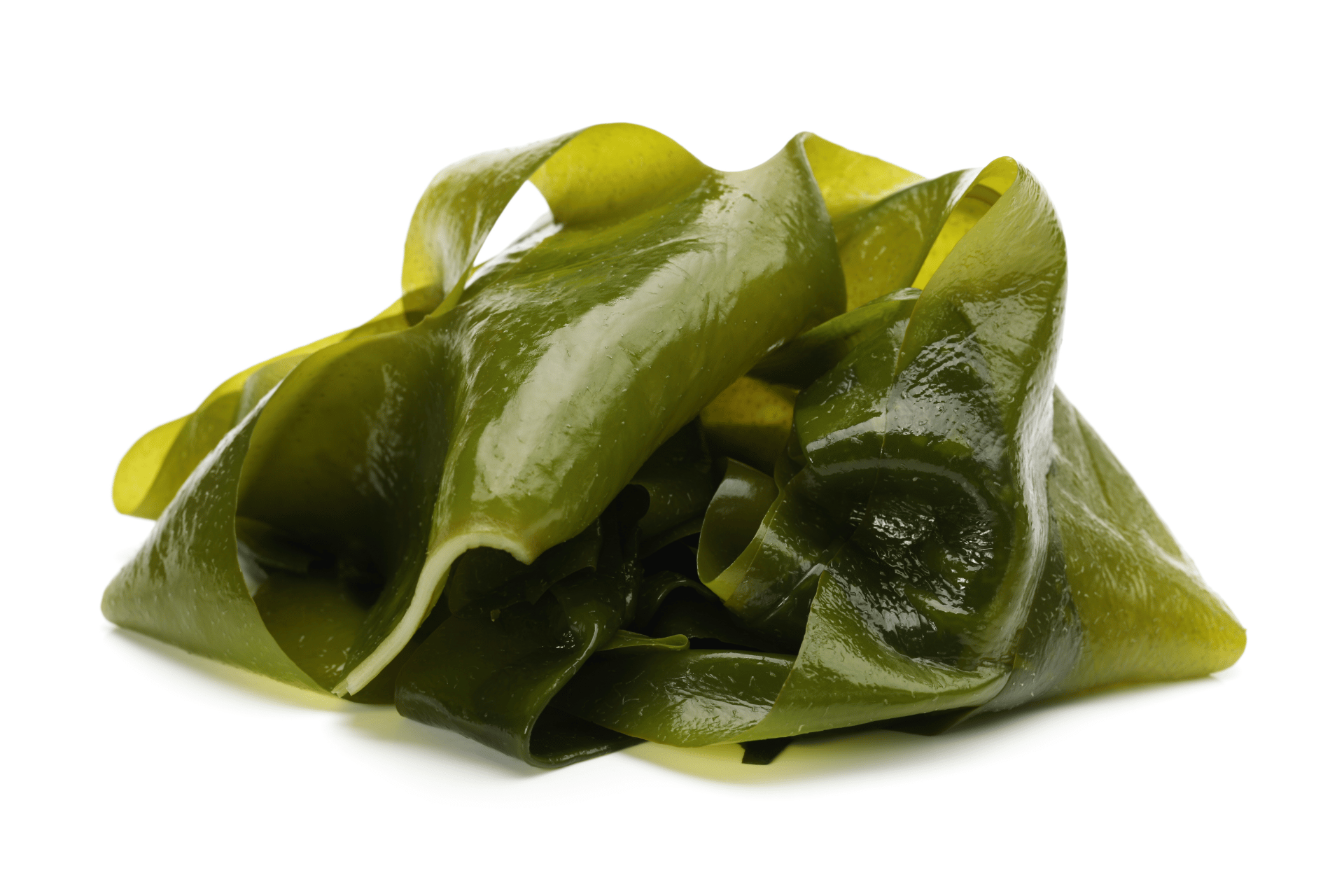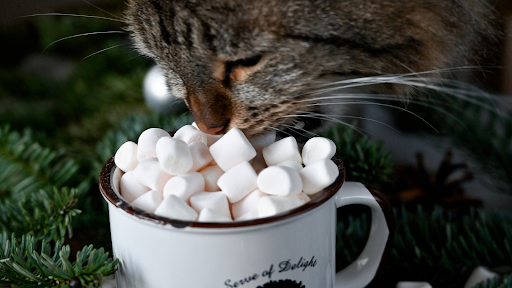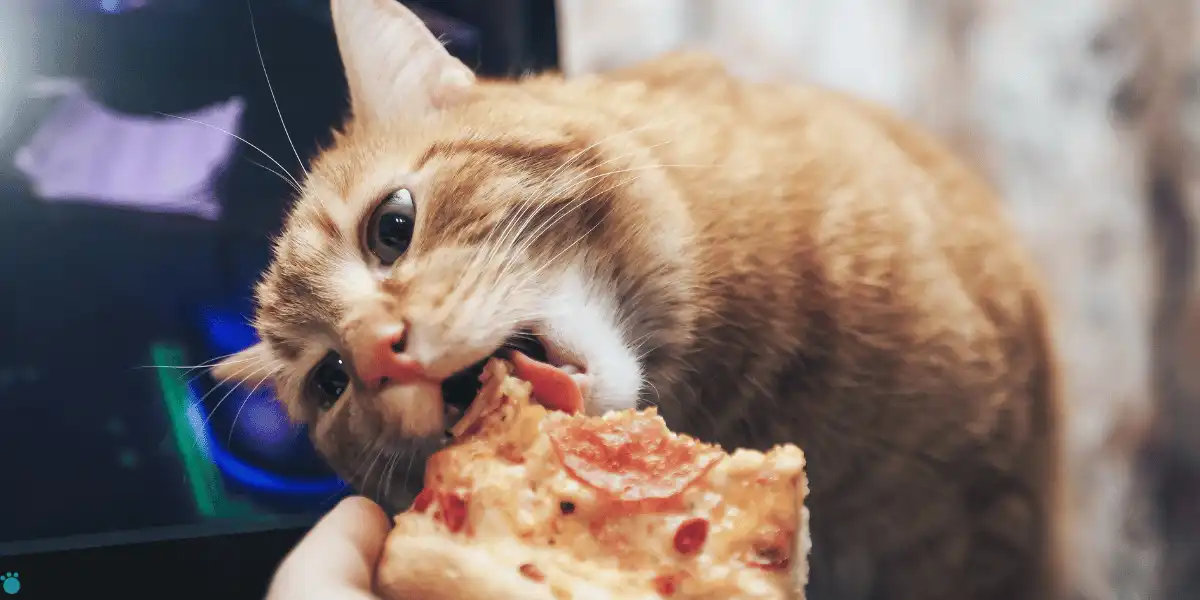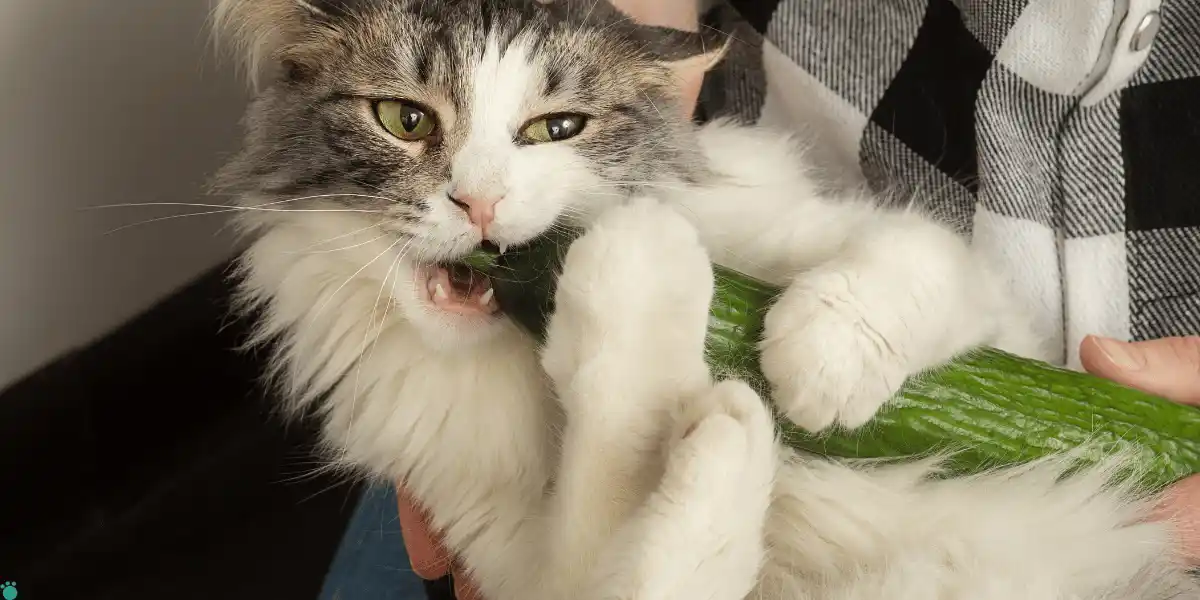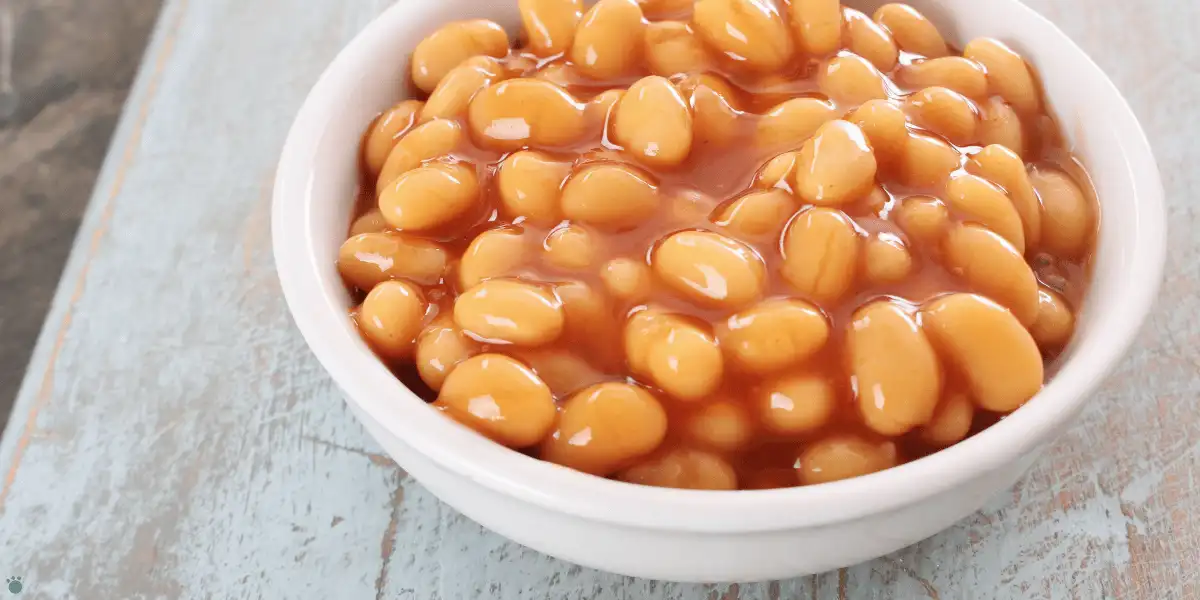One question that often pops up in our cat parent community is, “Can cats eat raspberries?” It’s not uncommon to wonder if our furry friends can munch on the same snacks we enjoy.
As humans, we enjoy the sweet-tart flavor of raspberries, but what about our feline friends? Raspberries are packed with antioxidants, vitamins, and fiber, all beneficial to our health. But how does this translate to our cats?
Let’s delve in deeper.
Short Answer: Can Cats Eat Raspberries?
Yes, but in Moderation. Cats can indeed eat raspberries. However, like any other treat outside their regular diet, raspberries should be given in moderation. While these juicy berries are packed with antioxidants, fiber, and vitamin C, they can also contain a small amount of xylitol, a natural sweetener harmful to cats in large quantities.
What is in Raspberries?
Raspberries are packed with various nutrients, making them a powerhouse of health benefits.
Raspberries are like a treasure chest full of vitamins and minerals. They are high in antioxidants, such as vitamin C and ellagitannins.
These antioxidants are vital for combating free radicals in the body and preventing oxidative stress.
For those who are sugar-conscious, rest easy! Raspberries contain less than 2.7 grams of sugar per 100-gram serving, qualifying them as a low-sugar fruit.
They’re also relatively low in caloric content but high in fiber, making them a healthy choice for cat treats.
Potential Health Benefits of Feeding Your Cat Raspberries
Let’s dive into the health benefits these little fruits can offer for your feline companion.
1. High in fiber content
Did you know that raspberries are rich in dietary fiber? Just one cup contains about eight grams!
This fiber can aid your cat’s digestion and keep them full for longer, which can be especially beneficial for cats prone to overeating or weight gain.
But remember, moderation is key. Too much fiber can upset your cat’s stomach, so keep raspberry treats to a minimum.
2. Hydrating Your Cat With Raspberries
Cats can be notorious for not drinking enough water. This is where the high water content in raspberries can come in handy.
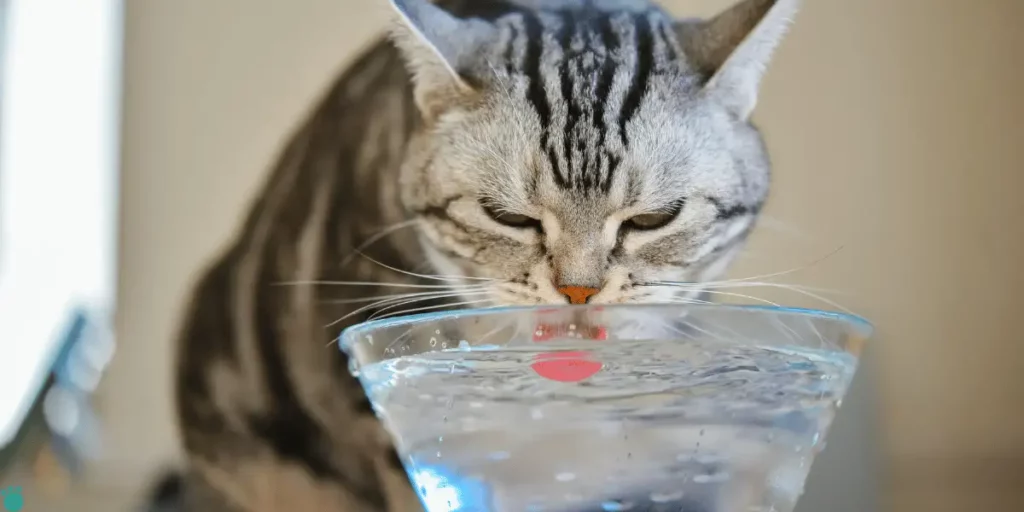
With their 85.75% water content, Raspberries provide a natural source of hydration that can supplement your cat’s water intake and help keep it hydrated.
Plus, the juicy nature of raspberries might make them an enticing treat for your furry friend!
For more information on how long can cats go without water, you can read this article.
3. Raspberries are a low-sugar treat
Despite their sweet taste, raspberries are surprisingly low in sugar. This makes them a healthier treat option for your cat than many commercial cat treats out there.
Of course, moderation is key. Just because they’re low in sugar doesn’t mean your cat should be dining on raspberries all day. A few here and there make for a delightful and healthy treat.
4. High in Antioxidants
Raspberries are a fantastic source of antioxidants.
What are antioxidants, you ask? These little molecules are essentially the superheroes of the cellular world, fighting off damage from harmful elements known as free radicals.
In cats, antioxidants like those found in raspberries can enhance the immune system, promote healthy aging, and even reduce the risk of chronic diseases.
Possible Risks and Side Effects Of Feeding Your Cat Raspberries
While raspberries are not toxic to cats, they can pose some potential concerns.
The Sugar Content in Raspberries
Raspberries, like all fruits, contain natural sugars.
While a small amount won’t affect a healthy cat, an excess can lead to health issues like diabetes or obesity.
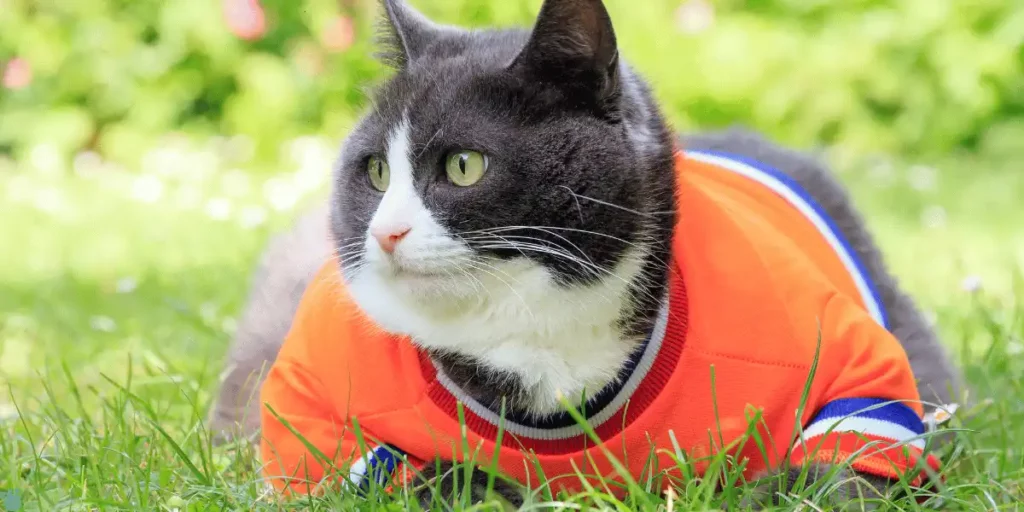
Remember, cats’ bodies aren’t designed to process sugars the same way ours are. So, while a raspberry might be a sweet treat for you, it could be a sugary overload for your cat.
In fact, according to the Association for Pet Obesity Prevention, 60% of cats in the U.S. were classified as overweight or obese in 2018. And the risk of diabetes increases with weight gain.
Choking Hazards and Digestive Issues
In addition to sugar content, the physical structure of raspberries can pose a risk.
Their small size can be a choking hazard if your cat decides to swallow one whole. It is always a good idea to cut the raspberry into smaller pieces before offering it to your kitty.
Moreover, after eating raspberries, some cats may experience allergic reactions or digestive issues such as diarrhea or vomiting.
It’s always best to monitor your cat after introducing a new food to their diet.
How to Feed Raspberries to Your Cat
Just as you would with any new cat food, gradually introducing raspberries to your feline friend is crucial.
The idea here is to allow your cat’s digestive system to adjust while gauging their reaction to this novel treat.
Here’s your guide to getting started:
1. Wash the Raspberries: Always start by thoroughly washing the raspberries to remove any residual pesticides or dirt.
2. Small Portions are Key: Start with a small raspberry piece. It’s enough for your cat to taste without overwhelming their system.
3. Monitor the Reaction: Keep an eye on your cat after they’ve eaten the raspberry. Look for any signs of discomfort or adverse reactions like vomiting or diarrhea. If none occur, you’re good to go!
4. Increase Gradually: If your cat enjoyed its first raspberry encounter and no adverse reactions were noted, you can slowly introduce more. Remember, moderation is everything.
Cats, being obligate carnivores, get most of their nutrition from meat. Fruits like raspberries should be considered a treat and given sparingly.
One or two raspberries once or twice a week should suffice. Over-feeding could lead to stomach upset or weight gain, which we certainly want to avoid.
Alternatives to Raspberries
Raspberries aren’t the only safe fruit option for your feline friend.
Other fruits like blueberries, bananas, and melons can also be offered as occasional treats. As always, make sure to introduce them slowly and in small quantities.
While we’re on the topic of treats, it’s important to know which ones to avoid. Grapes, raisins, and cherries are toxic to cats and should be kept out of their reach.
Conclusion
Remember, while sharing your favorite foods with your cat can be a bonding experience, their dietary needs differ from ours. Always prioritize a balanced, meat-based diet for your cat, and treat fruits like raspberries as an occasional treat, not a meal replacement.
And as always, when in doubt, consult your vet. They can provide the most accurate advice based on your cat’s dietary needs and overall health.
Frequently Asked Questions
How many raspberries are ok for cats?
Yes, in moderation. Just a couple of berries once or twice a week should be sufficient.
What berry is toxic to cats?
Grapes and raisins are highly toxic to cats and can cause kidney failure.
What fruit can cats not eat?
Cats should avoid citrus fruits like lemons, limes, oranges, grapefruits, and any fruit with a pit, like cherries or peaches.
Are raspberry bushes poisonous to cats?
No, raspberry bushes are not poisonous to cats. However, cats might get injured by thorns in the bushes, so keeping your cat away is best.
Can cats eat strawberries?
Yes, cats can eat strawberries. They’re a healthy treat when given in moderation.
Can cats eat blueberries?
Absolutely! Blueberries are safe for cats and can be a great source of antioxidants.
